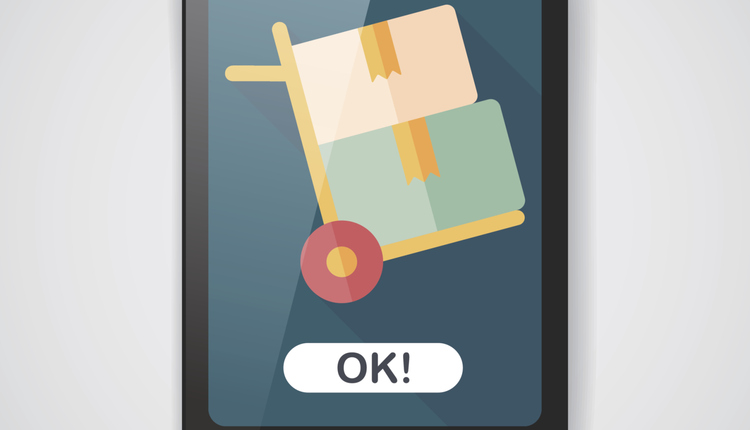In ancient times, the Greek merchants set up agoras, and in Rome forums became the destination of choice for shoppers who came to buy whatever they needed. During the past century, this process evolved, and instead, people ventured out to shopping malls. The trek to brick and mortar shops required planning and in many cases, since local stores didn't always have the exact item(s) that was desired, the trip often ended in futility or with consumers not getting exactly what they wanted - such a waste! Merchants imposed hefty markups too, while geographically restricted consumers were virtually powerless to do anything about it. To manage local inventory, retailers had to anticipate those items consumers would want to buy months in advance and with little data to support their decision. Consequently, outlet stores evolved to compensate for a plethora of miscalculations. Worsening the agony, parents of young children struggled tirelessly with car seats designed by engineers (who never actually used them) when the little ones wanted to tag along. Can you imagine? Oh the humanity!
Enter the 21st century; savvy shoppers buy almost anything online, comparing prices from thousands of e-retailers in minutes and getting their items delivered right to their home in a few days, all without ever venturing outdoors. Consumers can now get precisely what is wanted and at the lowest price without ever waiting in line. Many e-shoppers have become experts on the delivery schedules of the top three package carriers (UPS, FedEx and the USPS) to predict when an item will arrive in an attempt to pay the lowest shipping cost. Parcel carriers have now become mainstream and the savvy consumers' new BFF.
The latest news: Amazon, seeking to annihilate the competition (there are still a few left) and to offset current lengthy wait times of one or two days, is set to offer consumers same day delivery; shoppers placing orders in the a.m. will receive their orders delivered in the p.m. Amazing.
Today a consumer can notify FedEx to hold a delivery at a FedEx office if plans change and FedEx Delivery Manager with as little as a day's notice offers consumers the ability to reroute shipments to a different shipping address than originally intended.
So what does the future hold?
It's called Telepathic Web Internet Timetable (TWIT) and it will be here sooner than you might "think." TWIT will eliminate all of today's shopping conundrums including those laborious visits to websites, grueling shopping cart checkout processes and the pain of waiting so long for items to be delivered. TWIT will guarantee home delivery to your door in under five minutes (originally, the TWIT development team considered a chimney drop, but Santa Claus threatened legal action, putting the kibosh on that idea).
Here's how it will work - a consumer mentally decides what they want and in less than five minutes the item simply appears at the front door (gift-wrapping or engraving will delay that three minutes!). TWIT will come installed on the quantum processor/memory enhancement chip that's implanted into all next-generation humans at birth. It will operate by using state of the art, nanotechnology to monitor the consumer's thoughts and emotions so that the instant the consumer finalizes a decision, the order is then transmitted at 2.5 times the speed of light to a central computer system.
Once the order is received, it's prioritized, and then filled by automated, fully indexed inventory kept in an invisible, strategic fleet of aircraft hovering endlessly above the Earth. This ensures that a shopper will never ever have to wait longer than five minutes for anything they want to buy, ever again. Environmentalists are ecstatic since these stealth-traveling warehouses never making noise, kill wildlife or require fossil fuels (they're all used up anyway).
Since there is no such thing as privacy, governments and big data companies will collaborate to provide merchants the ability to know, with a high level of certainty, those items a consumer will want to buy, even before they do. That way when a consumer finally gets around to thinking about buying something, TWIT will enable that specific item, to be floating right overhead and delivered to their door in moments.
Providing thought delivery; a TWIT will change our lives forever. Who'da thunk it? Now that's what I call innovation.
Stay tuned to find out how to return items in the future
Enter the 21st century; savvy shoppers buy almost anything online, comparing prices from thousands of e-retailers in minutes and getting their items delivered right to their home in a few days, all without ever venturing outdoors. Consumers can now get precisely what is wanted and at the lowest price without ever waiting in line. Many e-shoppers have become experts on the delivery schedules of the top three package carriers (UPS, FedEx and the USPS) to predict when an item will arrive in an attempt to pay the lowest shipping cost. Parcel carriers have now become mainstream and the savvy consumers' new BFF.
The latest news: Amazon, seeking to annihilate the competition (there are still a few left) and to offset current lengthy wait times of one or two days, is set to offer consumers same day delivery; shoppers placing orders in the a.m. will receive their orders delivered in the p.m. Amazing.
Today a consumer can notify FedEx to hold a delivery at a FedEx office if plans change and FedEx Delivery Manager with as little as a day's notice offers consumers the ability to reroute shipments to a different shipping address than originally intended.
So what does the future hold?
It's called Telepathic Web Internet Timetable (TWIT) and it will be here sooner than you might "think." TWIT will eliminate all of today's shopping conundrums including those laborious visits to websites, grueling shopping cart checkout processes and the pain of waiting so long for items to be delivered. TWIT will guarantee home delivery to your door in under five minutes (originally, the TWIT development team considered a chimney drop, but Santa Claus threatened legal action, putting the kibosh on that idea).
Here's how it will work - a consumer mentally decides what they want and in less than five minutes the item simply appears at the front door (gift-wrapping or engraving will delay that three minutes!). TWIT will come installed on the quantum processor/memory enhancement chip that's implanted into all next-generation humans at birth. It will operate by using state of the art, nanotechnology to monitor the consumer's thoughts and emotions so that the instant the consumer finalizes a decision, the order is then transmitted at 2.5 times the speed of light to a central computer system.
Once the order is received, it's prioritized, and then filled by automated, fully indexed inventory kept in an invisible, strategic fleet of aircraft hovering endlessly above the Earth. This ensures that a shopper will never ever have to wait longer than five minutes for anything they want to buy, ever again. Environmentalists are ecstatic since these stealth-traveling warehouses never making noise, kill wildlife or require fossil fuels (they're all used up anyway).
Since there is no such thing as privacy, governments and big data companies will collaborate to provide merchants the ability to know, with a high level of certainty, those items a consumer will want to buy, even before they do. That way when a consumer finally gets around to thinking about buying something, TWIT will enable that specific item, to be floating right overhead and delivered to their door in moments.
Providing thought delivery; a TWIT will change our lives forever. Who'da thunk it? Now that's what I call innovation.
Stay tuned to find out how to return items in the future








